A new migrant deal between Britain and France will come into effect on August 5, according to the UK Home Office. The plan will see some irregular migrants arriving in the UK on boats be sent back to France — in exchange for others who will be allowed to enter Britain legally.
Irregular migrants arriving in the UK on small boats from the French coast may now be detained and returned to France if they are deemed ineligible for asylum under the new scheme, which has been dubbed "one-in, one-out."
In exchange for France taking these ineligible asylum seekers back, the UK will have to accept an equal number of foreign nationals living in France who will be able to apply for asylum via an online platform, subject to documentation verification and security checks.
Priority will be given to people with ties in Britain, such as Syrian or Afghan nationals whose family members have already succeeded with their asylum cases in the UK.
Furthermore, the scheme will focus on applicants with vulnerable backgrounds, who otherwise may be prone to falling victim to smugglers.
UK authorities said they were "operationally ready" to implement the practicalities of the deal, adding that migrant detentions and subsequent returns were due to begin "within days."
Anyone who arrives as an irregular migrant on a small boat will now be subject to being detained immediately upon reaching UK shores, as spaces at immigration removal centers have specifically been set aside for this purpose already.
Only underage minors and people deemed to be medically vulnerable are exempt from being subjected to implementation of the new agreement.
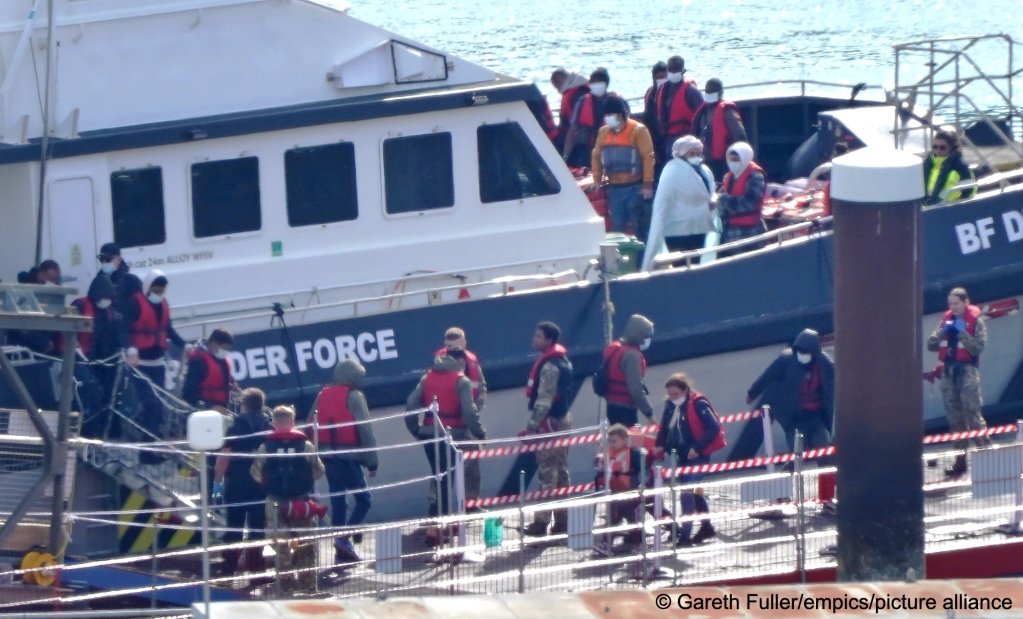
Read Also Macron and Starmer discuss tougher joint measures to curb Channel migrant crossings
One year trial period
The deal will be observed closely across Europe, as it is built on somewhat of a loophole in international law. According to existing law, no government is allowed to send any asylum seekers back to their home country before their asylum claim has duly been considered. However, they can be sent to safe third countries that are willing to consider their claim.
Britain hopes this new practice will discourage people from trusting smugglers and will help dismantle the illegal people smuggling trade.
UK Home Secretary Yvette Cooper explained that the agreement was "an important step towards undermining the business model of the organized crime gangs that are behind these crossings — undermining their claims that those who travel to the UK illegally can't be returned to France."
The pilot phase of the scheme is set to run until June 2026, upon which a longer-term agreement might be initiated.
Read AlsoUK: Government calls for reform of European human rights convention to help manage migration
Stopping migrant smugglers at the root
The agreement between London and Paris was finalized in its wording last week and then presented to the EU Commission for further scrutiny.
The UK Home Office then announced in a press release on Monday (August 4) that the European Union had given its green light.
The deal, which was reached between British Prime Minister Keir Starmer and French President Emmanuel Macron last month, comes as record numbers of people continue to try to cross the English Channel from France to the UK.
Starmer said the ratification of the treaty sent "a clear message — if you come here illegally on a small boat you will face being sent back to France."
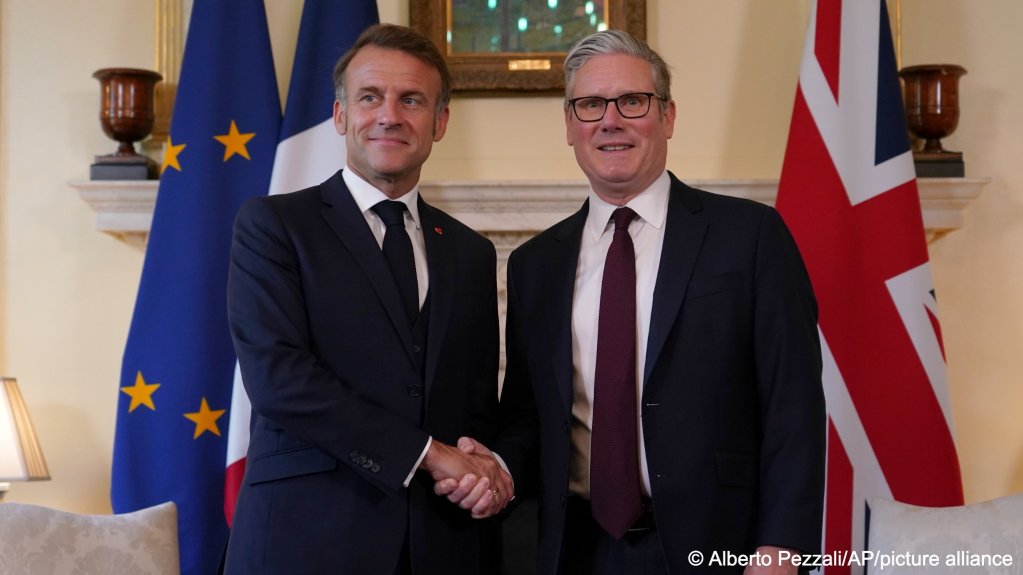
Read AlsoOver 1,000 migrants cross Channel in small boats over two days
A polarized mood across Britain
Mere days ago, the number of irregular migrants making the dangerous journey across the English Channel crossed the tally of 25,000 entries for this year alone — nearly half more than by this point in 2024 and also 2023.
This is the greatest ever number ever reached by the end of July since officials started recording arrivals.
This increase in arrivals has also resulted in a great deal of discontent across Britain in recent weeks, with anti-immigration protests being held in multiple locations across the country, in particular outside hotels designated to house asylum applicants.
Some of the demonstrations have turned violent, with far-right protestors repeatedly running into clashes with migrant supporters. In over two dozen towns in England and in Northern Ireland, crowds have been seen attacking migrant housing facilities, mosques and even police.
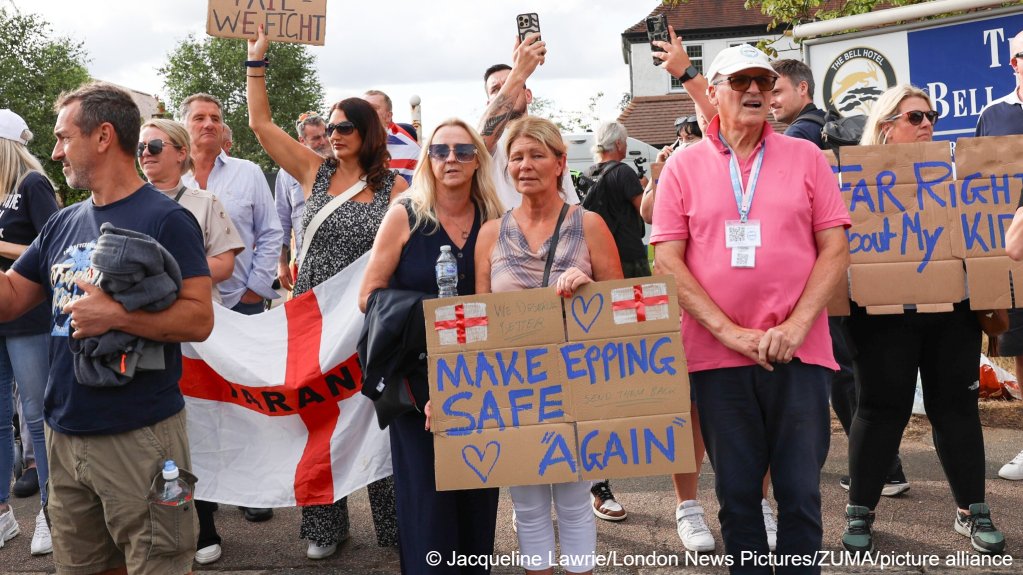
Read AlsoWhat is behind the anti-migrant clashes in the UK?
Opposition parties in parliament, however, have also voiced criticism against the agreement saying that realistically, only 50 people could be returned to France each week, compared to the average of around 800 people who continue to reach British shores weekly.
The source of that number is unclear but is probably based on the rate of how many people Britain could potentially accept from France each week; government ministers have so far declined to state how many people will be returned under the deal, but have stressed that if the pilot scheme is successful, the figure will increase in the future.
Refugee charities meanwhile have said that the British government should instead shift its focus on creating more safe and legal routes for asylum seekers to reach the UK.
Various bodies have said they would seek legal action against the scheme, however, in anticipation of such opposition the Home Office said that it had learned lessons from the "lengthy legal challenges" it already had faced in recent years over the previous government's Rwanda scheme, adding that it was prepared and equipped to "robustly defend" any attempts to block migrant removal through British courts.
Another 100 million pounds to stop irregular migration
Meanwhile, there's also growing discontent on the other side of the Channel, as some officials in northern France have voiced the viewpoint that the deal is too favorable to Britain; this comes amid a significant rise in violence among migrant communities in the area around the Channel coast, which has repeatedly resulted in fatalities.
This comes despite the fact that French authorities have officially changed their guidance standards and are now allowing authorities to also intercept migrant boats while they still are in shallow waters; previously, wording on this practice had been ambiguous at best, as police interference in shallow water can also result in boats capsizing.
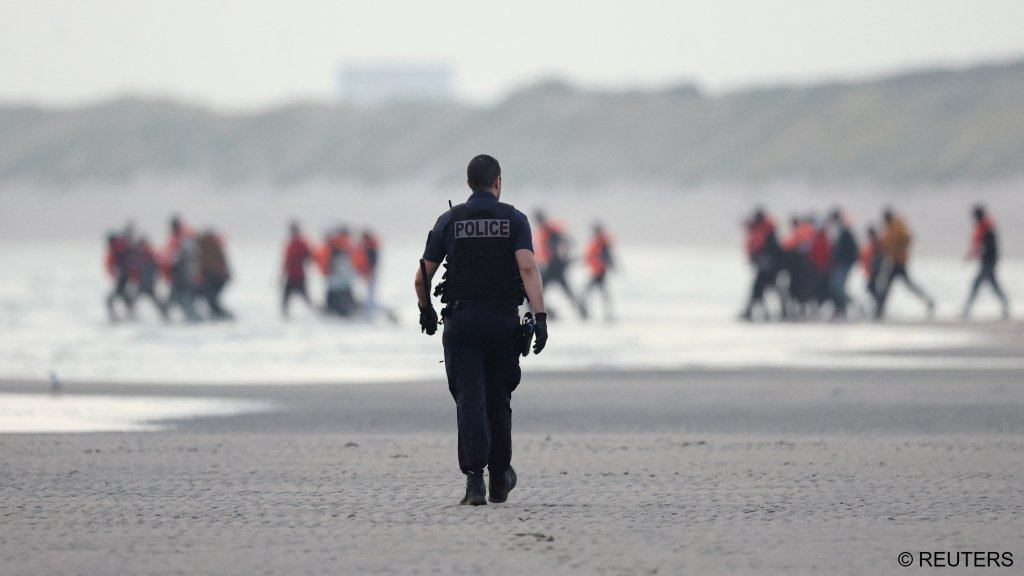
Read AlsoUK and France seek novel way to stop small boats amid new records
Furthermore, the UK is also expected to provide France with additional funds as part of the partnership, though it is unclear how much is likely to flow into Paris' coffers as the Home Office is first directing its focus on finalizing the domestic side of this stricter anti-migration package in the UK.
As part of this, the Home Office pledged another 100 million pounds (115 million euros) to tackle irregular migration, which will be applied to various dimensions of the issue, including the recruitment of 300 additional law enforcement officials, making better use of technologies designed to curb irregular entries and allocating more funds to stopping illegal work among immigrants.
"The investment will build on the recent successes under existing funding, including the arrest and prosecution of major smuggling gang kingpins, the seizure of over 600 small boats and engines, and the disruption of a further 351 criminal gangs," the Home Office added in a statement.
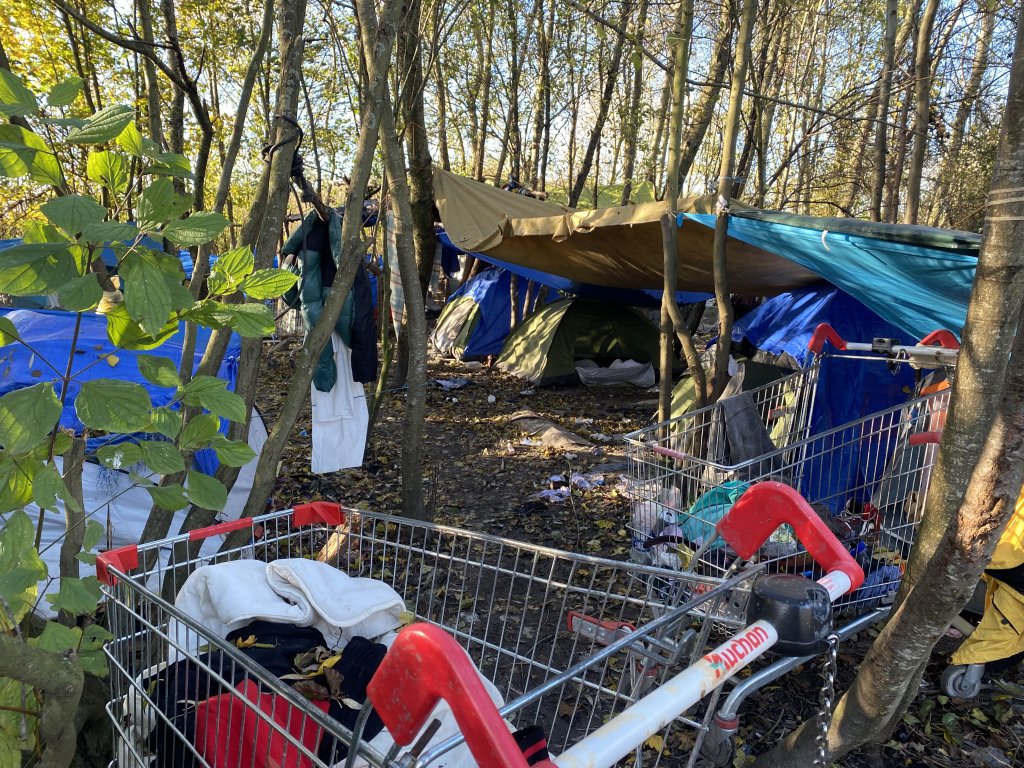
Read AlsoEnglish Channel: France considering interceptions at sea
The price of welcoming refugees
While 100 million pounds sounds like a large amount, it pales in comparison to the 20 billion pounds (around 17 billion euros) that have been spent in the UK over the past 10 years on "migrant-welcoming schemes," including asylum accommodation.
This is the amount that academics from the Centre on Migration, Policy and Society (Compas) at the University of Oxford have recently concluded has been spent on asylum seekers over the last decade.
Their findings also highlight that only "small amounts of money" had been invested in long-term goals such as integration and community cohesion, which have fanned the flames of the recent protests taking place across the country.
The consequences of Brexit
The success or failure of the scheme could potentially be a turning point for Prime Minister Keir Starmer, who since coming into power just over a year ago has been losing support against the rise of the far-right Reform UK party, spearheaded by Nigel Farage, which has closely been linked to the ongoing protests across the UK.
According to Farage, the "one-in, one-out" policy fails to go far enough to secure Britain's borders. His rhetoric appears to be popular, as his party continues to come out at top in most polls held across the UK.
Ten years ago, Farage was one of the main supporters for the campaign to leave the European Union, known commonly as "Brexit."
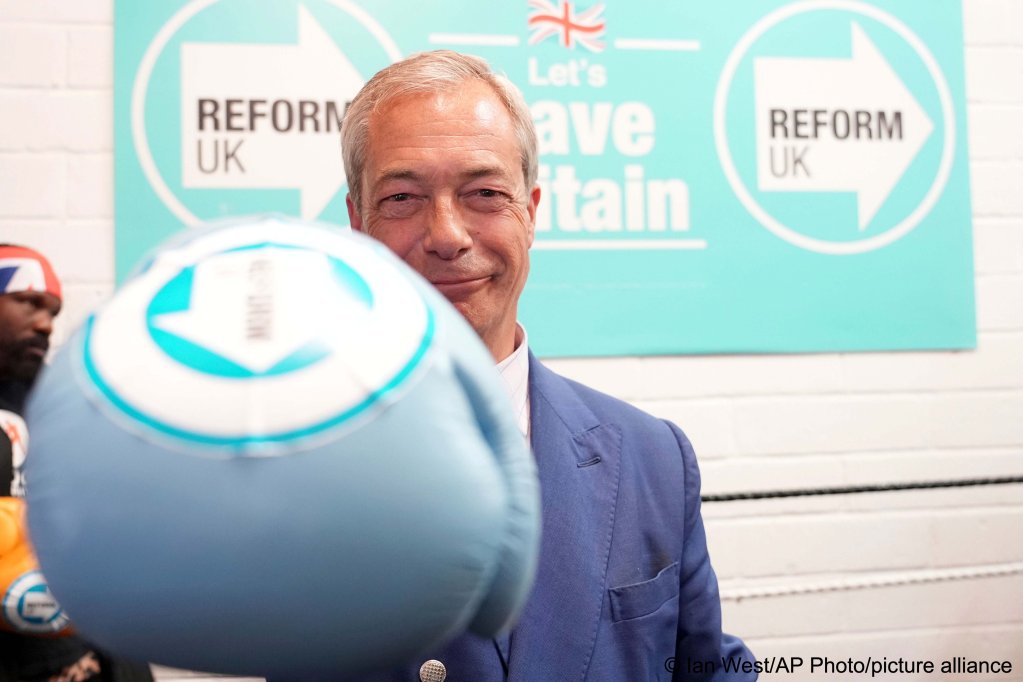
However, the UK's subsequent departure from the bloc in 2020 is actually one of the driving reasons behind the increase in irregular migrant arrivals:
Since the UK is no longer part of the EU, it is also not included in its Dublin Regulation — a system designed to return asylum seekers to their country of first arrival in the EU.
Therefore, those that do reach the UK, despite having traveled through multiple EU countries before and potentially having lodged asylum claims in any number of those prior countries, can still apply for protection in the UK without facing the threat of being sent back to another country they transited through under the terms of the Dublin regulation. Prior to Brexit, the UK was able to immediately turn many of those around and send them back to countries across the bloc.
Read AlsoUK: Social media people smugglers to face jail
with AFP, Reuters, dpa
